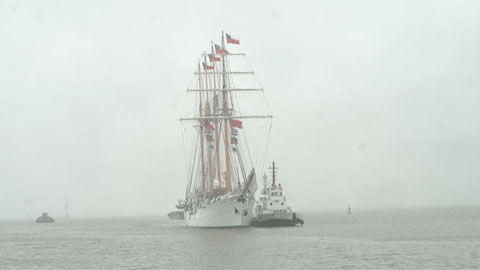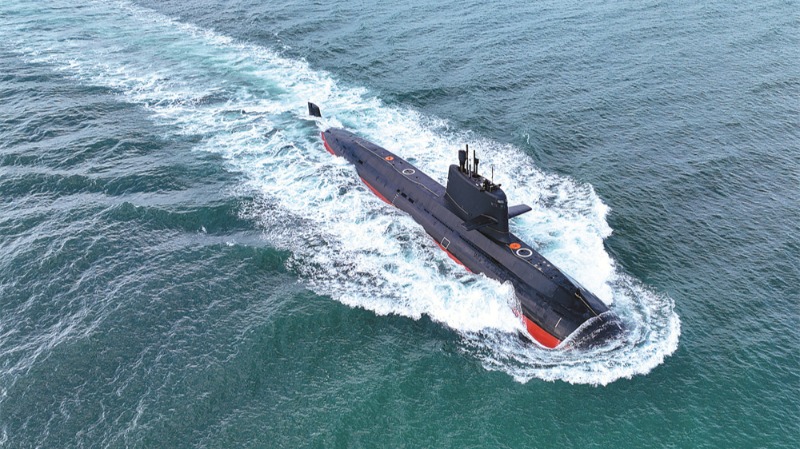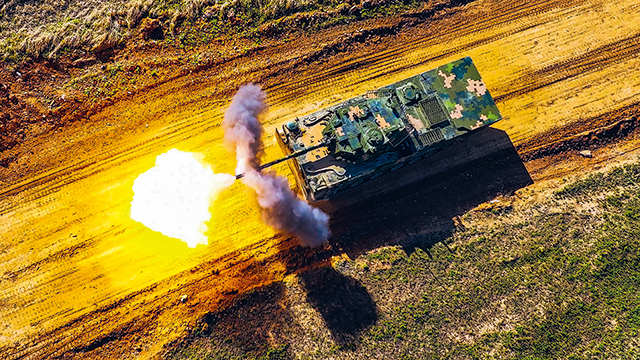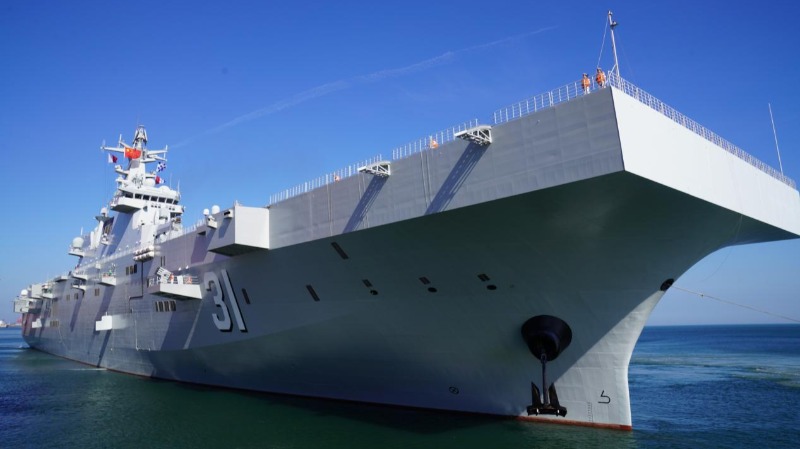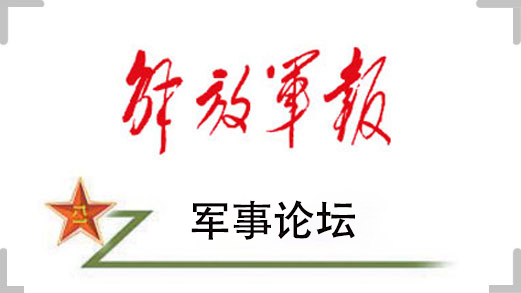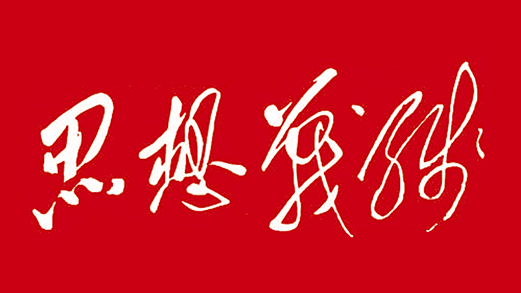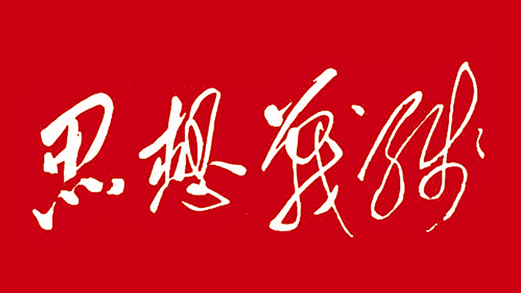凌云志
By Ling Yunzhi
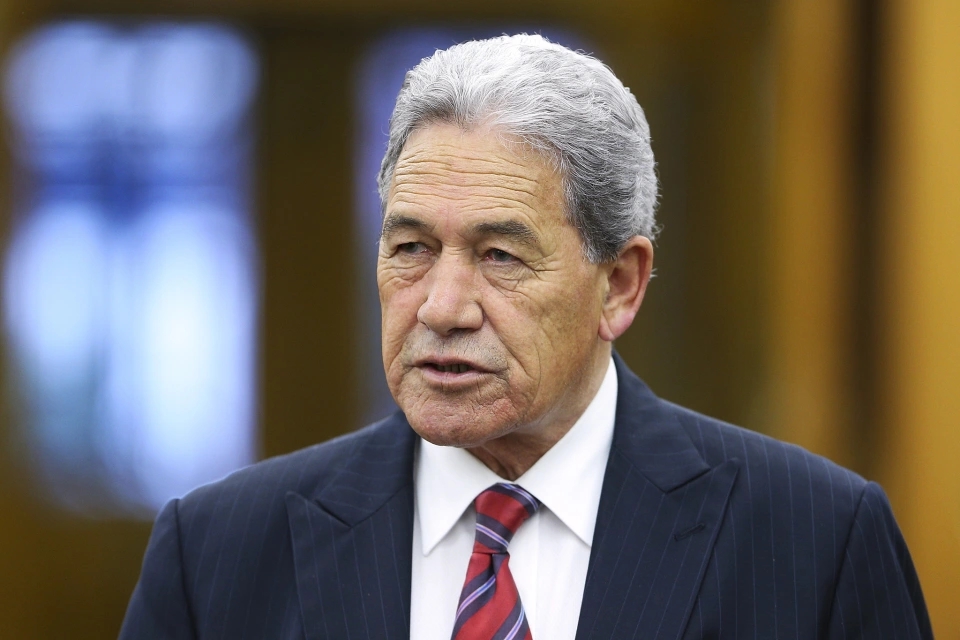
资料图:新西兰外交部长彼得斯
New Zealand's Foreign Minister Winston Peters
近期,新西兰与澳大利亚在墨尔本举行首次外长与防长“2+2”会谈。新西兰外交部长温斯顿•彼得斯在会谈后表示,将寻求与澳大利亚建立更紧密的防务关系,并考虑加入美英澳三边安全伙伴关系“奥库斯”(AUKUS)。这标志着有关新西兰加入“奥库斯”的讨论已经正式提上了日程。
Recently, New Zealand and Australia held their first meeting in the "2+2" format between foreign ministers and defense ministers in Melbourne. Both sides agreed to seek closer defense ties as the New Zealand considered sharing advanced military technologies with the United States and Britain through the so-called AUKUS partnership. This signifies that the discussions regarding New Zealand's inclusion in AUKUS have formally been placed on the agenda.
近年来,随着南太平洋地区战略地位的不断上升,诸多国家开始加大争夺在该地区的影响力。新西兰与澳大利亚作为南太平洋地区的重要国家,在不断密切双边关系的同时,也开始向多边合作机制进行拓展。
“奥库斯”是以美国为主导的双边和多边军事联盟中的核心组织,主要内容是美国和英国将向澳大利亚提供核潜艇技术,帮助澳方组建核潜艇编队,同时也积极推动三国技术互享,共同发展远程打击能力。
In recent years, with the increasing strategic importance of the South Pacific region, many countries have started to intensify their competition for influence in the region. New Zealand and Australia, being important countries in the South Pacific region, have begun to expand their multilateral cooperation mechanisms while maintaining closer bilateral relations.
As a core mechanism among the US-led bilateral and multilateral military alliances, AUKUS focuses on the provision of nuclear submarine technology by the US and the UK to Australia, assisting Australia in establishing a nuclear submarine fleet and actively promoting mutual sharing of technology among the three countries to jointly develop long-range strike capabilities.
新西兰自上世纪80年代以来一直奉行无核化政策,认为当前“奥库斯”的合作内容严重损害了国际核不扩散机制,并带来了核潜艇军备竞赛、导弹技术扩散等诸多方面的隐患和危害,因此对“奥库斯”一直持抵触态度。但是,随着地区安全形势和国内政治局势的不断变化,再加上美国不断加强对新西兰的拉拢力度,游说其加入“奥库斯”,新西兰政府对待“奥库斯”的态度正发生转变,加入“奥库斯”的进程也在不断加快。
However, New Zealand has been pursuing a denuclearization policy since the 1980s. It believes that the current AUKUS has seriously undermined the international nuclear non-proliferation mechanism and brought numerous hidden dangers and hazards, such as nuclear submarine arms races and missile technology diffusion. Therefore, it has always maintained a resistant attitude towards AUKUS. But due to changing regional security and domestic political situations, coupled with the continuous efforts made by the US and Australia, the New Zealand government's attitude towards AUKUS is changing, and the discussion on joining AUKUS is also accelerating.
不过,由于受到该机制关于核合作的主体内容以及自身无核化政策等种种因素制约,新西兰未来完全加入奥库斯的前景还不甚明朗。对于新西兰来说,虽然与美国和澳大利亚同属“五眼联盟”,但核政策却大相径庭。新西兰自上世纪80年代以来一直奉行无核化政策。事实上,早在1951年新西兰就同澳大利亚和美国签订了《澳新美安全条约》,但正是因为其反核立场,坚决拒绝携带有核武器的美国军舰造访,并制订了《新西兰无核区、裁军和军备控制法案》,才导致美澳新三国同盟体系破裂。
Nonetheless, influenced by the various factors, the prospect of New Zealand's full participation in AUKUS is still unclear. For New Zealand, its nuclear policy is significantly different from those of the US and Australia. New Zealand has been pursuing a denuclearization policy since the 1980s. It was its insistence on an anti-nuclear stance, the refusal to allow visits by warships carrying nuclear weapons from the US, and the enactment of the New Zealand Nuclear Free Zone, Disarmament, and Arms Control Act that led to the breakdown of the alliance system among the three countries.
从目前新西兰政府的外交战略来看,仍然没有迹象表明其核政策会发生变化,对“奥库斯”可能带来的核扩散风险仍保持高度警觉。例如,在本次“2+2”会谈中,新西兰仍然重申将继续支持太平洋地区无核化,“不准备妥协或改变无核立场”,明确表示只就参与“奥库斯”的第二支柱进行讨论,即合作范围仅局限于人工智能、量子技术、高超音速技术及电子战等新兴技术领域,而不涉及有关核技术的部分,这些都会对未来新西兰完全融入以核潜艇建设为主体的“奥库斯”机制构成重大制约。
In terms of current diplomatic strategy of the New Zealand government, there is still no sign that its nuclear policy will change, and the government remains highly alert to the possible risk of nuclear proliferation posed by AUKUS. For example, in the recent "2+2" meeting, New Zealand still reaffirmed its continued support for the denuclearization of the Pacific region and was not prepared to compromise or change its non-nuclear position. It stated that it would only discuss participating in the second pillar of AUKUS, which is limited to cooperation in emerging technologies such as artificial intelligence, quantum technology, hypersonic technology and electronic warfare, without involving nuclear technology. All these factors will significantly constrain New Zealand's full integration into the AUKUS mechanism, which focuses on nuclear submarine construction, in the future.
近年来,美国为了弥补其日益衰落的实力不足,不惜违背国际规则,热衷于建立各种“小圈子”,从“五眼联盟”到“四边安全机制”,再到“奥库斯”,一系列具有明显对抗色彩的同盟体系严重搅乱了地区和平发展局势。作为体现美英澳三国典型冷战思维和零和博弈思维的政治军事同盟,“奥库斯”越来越具有明显的阵营化、集团化特征。目前,“奥库斯”还正在积极进行扩员,目标对象包括加拿大、日本、韩国、印度等诸多国家。此次美澳推动新西兰加入“奥库斯”,也是推动实施该模式的一项重要举措。
In recent years, the US has been eager to establish various cliques including the Five Eyes Alliance, the QUAD, and AUKUS to compensate for its declining power shortage. These alliance systems, with obvious confrontational characteristics, have greatly disrupted regional peace and development. As a political and military alliance that reflects the typical Cold War thinking and zero-sum game mindset of the US, the UK and Australia, AUKUS is increasingly demonstrating characteristics of camp and bloc-based confrontation. Currently, it is actively expanding its membership, targeting numerous countries such as Canada, Japan, the ROK and India. The promotion of New Zealand to join AUKUS by the US and Australia is also a crucial measure to implement this model.
从未来发展来看,一旦新西兰加入“奥库斯”,将会形成很不好的国际示范效应,不仅进一步加剧地区军备竞赛和地缘对抗,也将会破坏亚太乃至全球的和平与稳定。
From the perspective of future development, if New Zealand joins AUKUS, it will cause a highly unfavorable effect worldwide. This will not only escalate regional arms races and geopolitical confrontations but also undermine peace and stability in the Asia-Pacific region and even globally.








